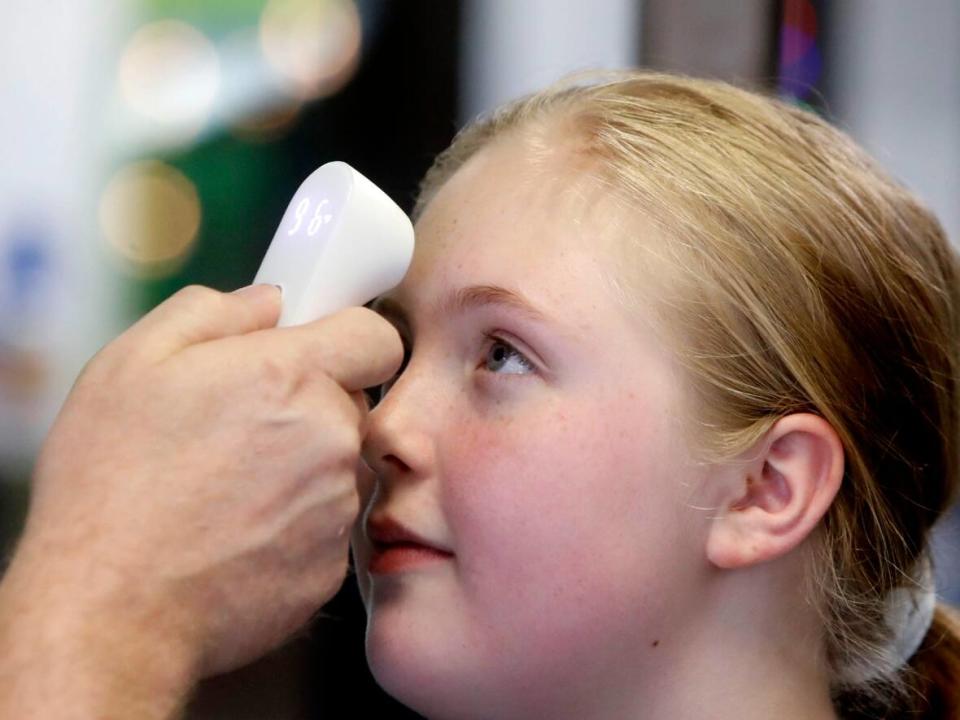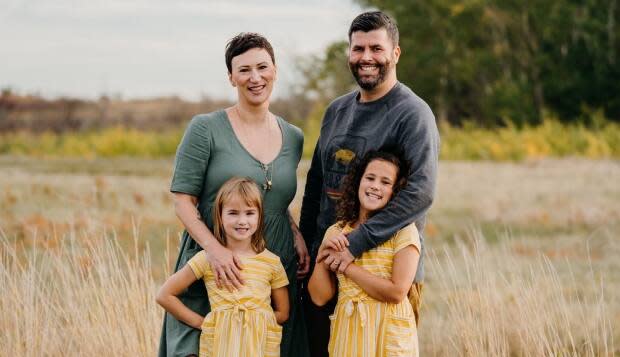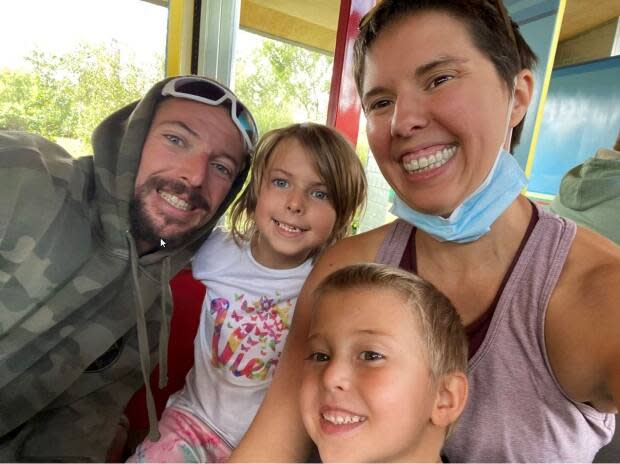From hospital visits to test confusion, Sask. parents share stories of what happens when kids get COVID-19

Throughout the COVID-19 pandemic, kids have had to deal with a range of anxieties, such as having to social distance from friends, losing grandparents and adapting to online school.
On top of that, they are also getting sick with COVID-19 — children under 12 are the only age group that still isn't eligible for vaccination.
On Friday, children 11 or younger accounted for one-third of the 300 new cases reported in Saskatchewan, according to the province.
While there has been a downward trend in new COVID-19 cases in the province over the past two weeks, Saskatchewan still has the highest rates of COVID-19 cases and deaths among all Canadian provinces over the past 14 days.
Despite taking measures such as social distancing, wearing masks and washing hands, some Saskatchewan parents have had to face the reality of seeing their child get sick with the illness.
Here are some of their stories.
6-year-old taken to hospital

Tara Oliver's husband and two children contracted COVID-19.
Her six-year-old began throwing up in the middle of the night. The girl developed a fever and had a horrible cough.
For two or three days, she couldn't stop throwing up, so Oliver had to take her to the Royal University Hospital in Saskatoon, where she was given medication and IV fluids.
"That was stressful and scary," said Oliver.
The next day, Oliver's nine-year-old daughter also began showing symptoms, including vomiting and headaches, but Oliver said her older daughter's case wasn't as severe.
The mother said the provincial government needs to do more to stop the spread of COVID-19.
"It's frustrating that we've made it this far, and then they [the children] get sick," she said.
She says she feels lucky none of her family members had to be admitted to the hospital, but she said the possibility is something she worries about constantly.
Testing confusion

Saskatoon's Sam Lock says his family's experience with COVID-19 was confusing.
When his three-year-old son began developing mild cold-like symptoms, the family decided to keep their two children home from daycare.
They found out later that there was a positive case at the daycare — and their son was a close contact.
The entire family got rapid test results, which came back negative.
But Lock's three-year-old son also took a more sensitive PCR test that came out positive.
Other members of the family were also showing symptoms despite having a negative rapid test result.
"It was a very confusing time," said Lock. "It was hard to know what the right thing to do was."
His family is out of isolation now, and Lock says he is grateful that none of his family members suffered severe COVID-19 symptoms.
He says that if there are any doubts around a rapid test result, a PCR test can help provide clarity.
Lock also feels that despite taking precautions, it was inevitable the family would be exposed to the coronavirus.
"We are doing everything we can as a family to avoid it, but without action on a higher level in a more serious way, it was bound to happen," he said.
Illnesses preventable, mom says

Megan Daschner's family had a brush with COVID-19 when her basement tenant tested positive for the illness.
The Saskatoon woman's daughter also tested positive after having spent time with the tenant.
Her daughter spread it to her son, and then Daschner got sick as well.
Daschner said it was difficult keeping the two children away from each other.
"They're so used to being in each other's bubbles that it was really hard to keep them apart," she said.
Daschner said she was constantly telling them to sanitize, pull up their masks and avoid sneezing in each other's faces.
She thinks the whole experience would have been preventable if stronger measures were put into place or if more people were vaccinated.
"It's just frustrating," she said.

 Yahoo Movies
Yahoo Movies 